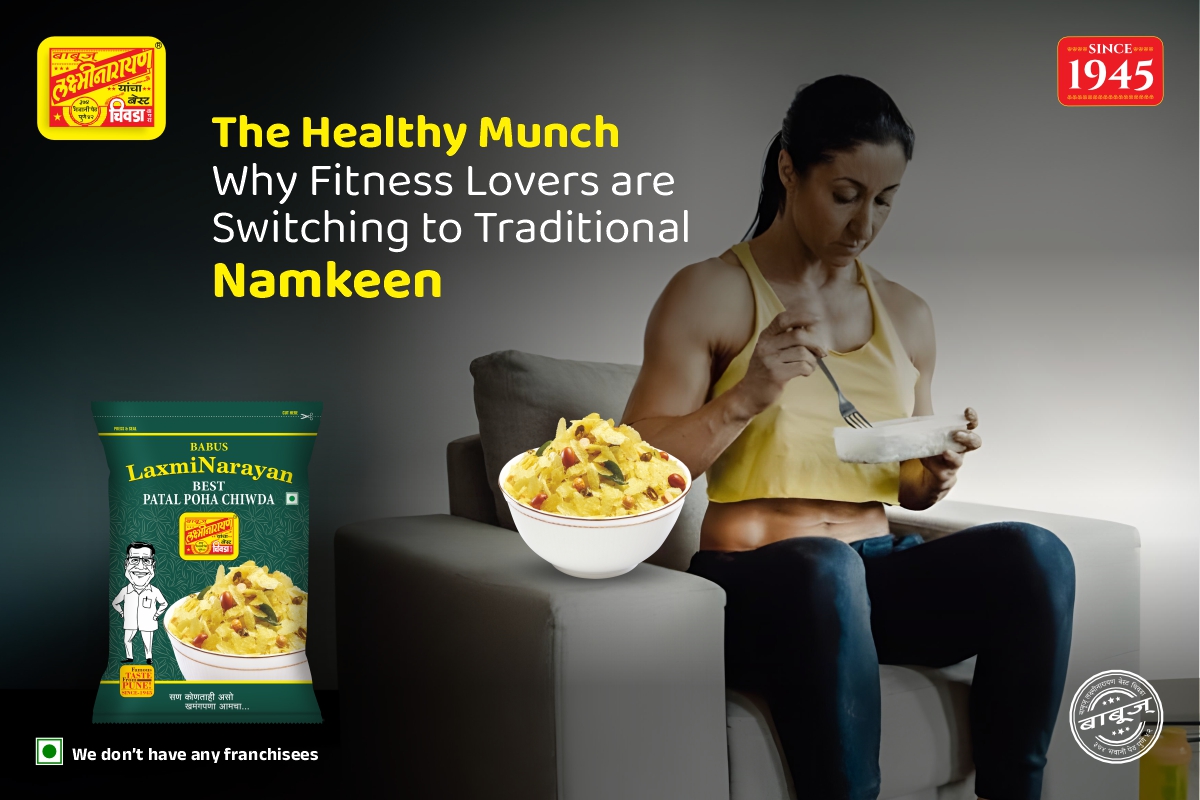Bakarwadi & Memories: How a Bite Can Take You Back to Your Nana-Nani’s House
Some snacks satisfy hunger. Others satisfy the heart.
In many Indian homes, the moment you open a box of Bakarwadi, something shifts. It’s not just the aroma of roasted masalas or the golden crunch of gram flour—it’s the wave of memories that comes with it. You’re no longer at your desk or in your city flat. You’re back at your Nana-Nani’s house, sitting cross-legged on a cool floor, listening to the whirr of the ceiling fan, and reaching into a steel dabba that always seemed to be full.
This is the power of Babus Bakarwadi—a snack that doesn’t just taste great, but connects generations, evokes stories, and preserves the quiet joy of childhood summers.
Let’s explore why Bakarwadi holds such a deep place in our emotional food map—and how Babus continues to keep that tradition alive.
A Legacy of Flavour, A Lifetime of Memories
Bakarwadi isn’t a new-age invention. It’s a heritage snack, born in Maharashtrian kitchens and passed down through handwritten recipes and careful hands.
For many of us, Bakarwadi was part of:
- Train journeys to grandparents’ homes, when snacks had to survive a two-day ride
- Afternoon teatime rituals, when the house smelled of elaichi chai and fried farsan
- Holiday visits, when cousins gathered, TV played in the background, and someone always brought out the dabba
Babus Laxminarayan Chiwda has been part of this story since 1945. For decades, families across India have brought back boxes of Babus Bakarwadi not just for its quality, but because it tastes exactly like they remember.
The Snack That Never Changed
One reason Bakarwadi creates such strong nostalgia is that the recipe hasn’t changed much.
Babus Bakarwadi is made with:
- Thin layers of besan dough hand-rolled with precision
- A rich, spiced masala filling of coconut, sesame, poppy seeds, sugar, dry mango powder, and red chilli
- Each roll tightened, sliced, and deep-fried to golden perfection
This process ensures every bite delivers the sweet-spicy-sour balance that defines classic Maharashtrian farsan. It’s the kind of flavour profile that stays with you—not overpowering, not synthetic, just right.
When you take a bite today, it still tastes like the one your nani served with warm chai in porcelain cups. That sense of continuity and care is rare in modern packaged foods—and that’s what makes Babus Bakarwadi more than just a snack.
More Than Taste—It’s a Feeling
When customers talk about their love for Babus Bakarwadi, they often don’t start with the ingredients. They talk about:
- “The way it reminds me of summer vacations in Kolhapur”
- “How my grandfather would pack some in newspaper to take to work”
- “My mother kept it in the top shelf and said it was only for guests—but we always sneaked a few”
These are not product reviews. These are living memories, tied to one simple, spiral-shaped snack. Food, after all, is memory in edible form. And when a brand protects that memory across generations, it becomes part of the family.
The Nana-Nani Nostalgia Is Real
Why does Bakarwadi, specifically, feel so connected to our grandparents’ homes?
- Traditional Preparation
Most Nana-Nanis valued handmade, small-batch snacks. Bakarwadi was often made in groups—grandmothers rolling and stuffing, children watching in awe. - Special Treat Status
Unlike everyday snacks like chiwda or shev, Bakarwadi had an air of occasion. It was fancier, more intricate, and often saved for guests or festivals. - Travel-Ready and Shareable
Because it stored well, grandparents loved gifting it. One dabba would last weeks, or at least that was the plan until grandchildren discovered it.
Babus Bakarwadi brings back this same ethos. It’s thoughtfully prepared, beautifully packaged, and tastes like home—no matter where you are.
Preserving the Taste, Sharing the Memory
Today’s world is faster. Packaging is flashier. New snacks come and go with changing trends. But amidst this, the love for Babus Bakarwadi has only grown—because people aren’t just looking for snacks, they’re looking for connection.
- For young professionals, it’s a way to bring home to a new city.
- For parents, it’s a snack they trust to pass on to the next generation.
- For grandparents, it’s a reminder that some traditions do last.
Even in global Indian homes—whether in New Jersey or Singapore—Bakarwadi is a symbol of home. Many families carry Babus boxes in their suitcases, hand them out at Diwali parties, or store them in their kitchen just to feel close to where they came from.
Final Thoughts: A Bite That Brings You Back
Not all nostalgia needs old photo albums. Sometimes, it comes in a spiral. Crisp, flaky, spicy-sweet, and unforgettable.
Babus Bakarwadi is more than a snack. It’s the scent of your nani’s kitchen, the comfort of sitting on the floor with cousins, and the joy of sneaking one more piece when no one’s watching.
In every bite, there’s a memory. In every pack, a story.
So go ahead—open that box, take a bite, and let yourself return. Back to your Nana-Nani’s house. Back to simpler times. Back to the flavours that never left you.





